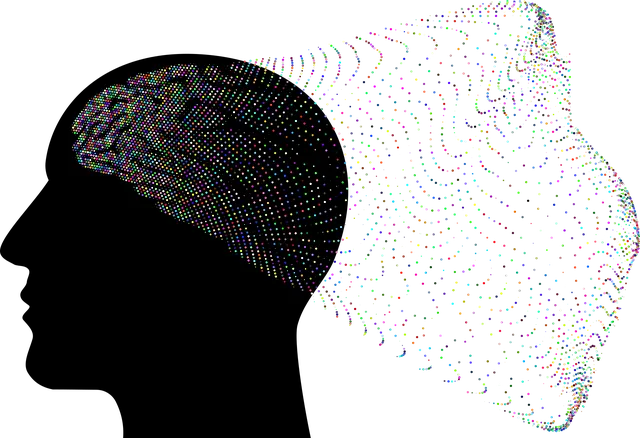Kaiser Permanente's comprehensive training programs in Highlands Ranch prioritize safety and harm minimization through risk assessment, mental health awareness, and proactive planning. By integrating Inner Strength Development, mindfulness practices, and individualized support, these programs empower healthcare professionals and community members to enhance well-being, reduce risks associated with mental health issues, and cultivate resilience, ultimately fostering a healthier and more supportive environment for all.
In today’s complex healthcare landscape, effective risk assessment and harm minimization planning are paramount for ensuring patient safety. This article explores these critical components, offering a comprehensive guide for professionals. We delve into the foundational principles of understanding risk assessment, highlighting best practices from Kaiser Permanente training programs. Additionally, we present innovative strategies for harm minimization planning, drawing insights from successful initiatives in Highlands Ranch.
- Understanding Risk Assessment: A Foundation for Safety
- Kaiser Permanente Training Programs: An Overview
- Harm Minimization Planning: Strategies and Implementation
- Best Practices in Risk Management: Lessons from Highlands Ranch
Understanding Risk Assessment: A Foundation for Safety

Risk assessment is a fundamental process in ensuring safety and harm minimization, especially within healthcare settings like Kaiser Permanente training programs in Highlands Ranch. It involves identifying potential hazards or risks and evaluating their likelihood and potential impact. This proactive approach allows organizations to implement appropriate strategies to mitigate risks and create a safer environment for patients, staff, and the community at large.
At Kaiser Permanente, understanding risk assessment is key to fostering an culture of safety. Their comprehensive training programs, including initiatives focused on Inner Strength Development and Self-Awareness Exercises, empower individuals to recognize potential hazards and take proactive measures. By integrating these skills into their practices, healthcare professionals can anticipate and address risks effectively, ultimately contributing to the successful implementation of Community Outreach Program Initiatives and enhancing overall well-being within the organization and community.
Kaiser Permanente Training Programs: An Overview

Kaiser Permanente Training Programs in Highlands Ranch offer a comprehensive suite of educational initiatives aimed at empowering employees and community members to take charge of their well-being. These programs span various aspects of health and wellness, including Mental Health Awareness, Mood Management, and Mindfulness Meditation. Participants gain valuable insights and practical tools to navigate challenges and promote holistic mental health.
The training programs are designed to be engaging and interactive, leveraging the latest research in neuroscience and psychology. They cater to diverse learning styles, ensuring that attendees can access content that resonates with them personally. By investing in these initiatives, Kaiser Permanente demonstrates its commitment to fostering a supportive environment where individuals can thrive both professionally and personally.
Harm Minimization Planning: Strategies and Implementation

Harm Minimization Planning, a key component of comprehensive risk assessment, focuses on proactive strategies to mitigate potential risks and promote well-being. At Kaiser Permanente training programs in Highlands Ranch, professionals are equipped with advanced techniques to create individualized harm minimization plans tailored to each client’s unique needs. These plans extend beyond immediate crisis intervention, emphasizing long-term resilience building and trauma support services.
The implementation of such strategies involves a multi-faceted approach, including Self-Care Routine Development for Better Mental Health. By teaching clients skills in stress management, emotional regulation, and healthy coping mechanisms, they gain tools to navigate challenging situations. Additionally, Inner Strength Development is fostered through evidence-based practices that promote personal growth, enhancing the individual’s capacity to overcome adversity and cultivate resilience.
Best Practices in Risk Management: Lessons from Highlands Ranch

Highlands Ranch, a suburb of Denver, Colorado, has been at the forefront of innovative risk management practices, thanks in part to Kaiser Permanente training programs. The community’s proactive approach to harm minimization planning offers valuable lessons for other areas looking to enhance their public health strategies. By prioritizing Mental Health Awareness and incorporating Emotional Well-being Promotion Techniques, Highlands Ranch has successfully reduced the impact of various risks, from substance abuse to mental wellness issues.
The town’s success lies in its holistic view of risk assessment, which involves community engagement and collaboration with local healthcare providers like Kaiser Permanente. Their comprehensive training programs have equipped residents with the knowledge and skills to identify potential hazards early on. This early intervention strategy has been instrumental in fostering a resilient community that is better equipped to navigate challenges, ensuring a safer and healthier environment for all its citizens.
Risk assessment and harm minimization planning are essential components of any comprehensive safety strategy. As demonstrated by Kaiser Permanente’s training programs and the successful harm minimization practices in Highlands Ranch, a structured approach can significantly enhance organizational resilience and protect both employees and the public. By understanding risk assessment as a foundational practice and implementing best practices like those highlighted here, organizations can proactively navigate potential hazards and ensure a safer environment for all.






